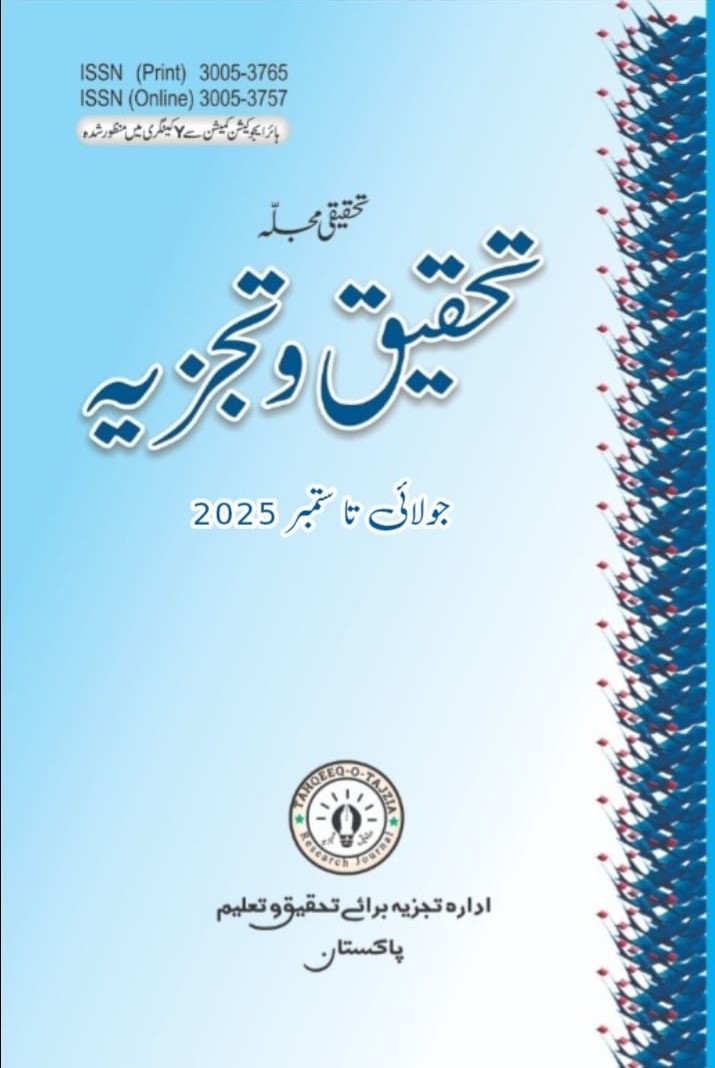Michel Foucault: A Critical Study of Life, Sexuality and Intellectual Formation
Keywords:
Michel Foucault, sexuality, power, knowledge, homosexuality, sadomasochism, pleasure, discourseAbstract
Michel Foucault is regarded as one of the most influential thinkers of the twentieth century who sought to reinterpret the interrelation of power, knowledge, and sexuality through new perspectives. This paper offers a critical analysis of the connection between Foucault’s personal life and his intellectual development. In particular, it examines his experiences of homosexuality, his exploration of new possibilities of pleasure within the American social milieu, and his reflections on unconventional sexual practices such as sadomasochism. The study further highlights that Foucault did not perceive sexuality merely as a biological reality or a form of social repression, but as a field of freedom, self-formation, and the strategic play of power. However, these experiences also led to crises in his personal life, manifesting in social criticism, public controversy, and ultimately illness and death. The purpose of this paper is to demonstrate that Foucault’s personal experiences not only shaped his philosophical trajectory but also provided a critical discourse on sexuality that continues to hold central significance in contemporary intellectual debates.
References:
- Christian Panier and Pierre Watté, “L'Intellectuel et les pouvoirs,” La Revue nouvelle, Vol. 80, No. 10, October 1984, p. 339.
- Rux Martin, “Truth, Power, Self: An Interview with Michel Foucault, October 25, 1982,” in Technologies of the Self: A Seminar with Michel Foucault, ed. Luther H. Martin, Huck Gutman, and Patrick H. Hutton, London: Tavistock, 1988, p. 11.
- Michel Foucault, “The Minimalist Self,” interview by Stephen Riggins, in Politics, Philosophy, Culture: Selected Writings, 1977–1984, ed. Lawrence D. Kritzman, London and New York: Routledge, 1988, p. 16.
- David Macey, The Lives of Michel Foucault, New York: Verso, 2019, p. 33.
- Foucault, “The Minimalist Self,” p. 13.
- Didier Eribon, Michel Foucault (1926–1984), trans. Hildegard Feist, São Paulo: Companhia das Letras, 1990, p. 40.
- Eribon, Michel Foucault (1926–1984), p. 41.
- , p. 41.
- Dominique Fernandez, Le Rapt de Ganymède, Paris: Grasset, 1989, pp. 291–292.
- Fernandez, Le Rapt de Ganymède, p. 82.
- Eribon, Michel Foucault (1926–1984), p. 42.
- Fernandez, Le Rapt de Ganymède, p. 82.
- Michel Foucault, “Est-il donc important de penser?,” Libération, May 30, 1981, cited in Eribon, Michel Foucault (1926–1984), p. 43.
- Eribon, Michel Foucault (1926–1984), p. 69.
- David Macey, Michel Foucault – Critical Lives, London: Reaktion Books, 2004, p. 43.
- Eribon, Michel Foucault (1926–1984), pp. 89–90.
- Macey, The Lives of Michel Foucault, p. 60.
- Michel Foucault, “Interview avec Michel Foucault,” interview with C. G. Bjurström, 1968, in Dits et écrits, Vol. 4, Paris: Gallimard, 1994, p. 344.
- Macey, Michel Foucault – Critical Lives, pp. 103–104.
- , p. 120.
- , p. 110.
- , p. 134.
- Michel Foucault, “Foucault: Non aux compromis,” in Dits et écrits, Vol. 4, pp. 336–337.
- Macey, Michel Foucault – Critical Lives, pp. 144–145.
Downloads





